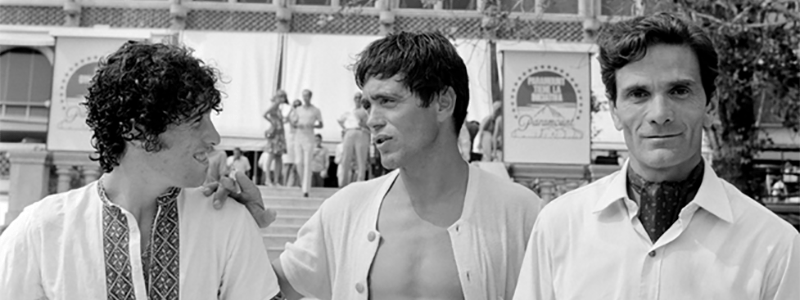
Confined to mental health facilities. Expelled from their country. Alienated. Imprisoned. Often insulted and ridiculed like funny movie characters. For many years this was life for homosexuals in Italy.
Back in 1800 and 1900, homosexuality began to be examined and studied in social psychology and criminology. Names like “Invertito” (inverted) and “pederasta” were used to describe a gay person, risking jail or “manicomio” if his or her behavior would become too apparent. But, even during those times, Italy was the favorite destination of many gay travelers, including Oscar Wilde.
The situation deteriorated during the fascist regime.
Even if the proposed Codice Rocco that makes being gay a crime does not materialize, gays are sent to the borders e continue to be discriminated by the population. Homosexuality is even used as a blackmail threat, in fact the secret fascist police publishes a report about the dubious virility of certain men in power or famous. Some examples: Prince Umberto II and Augusto Turati, former secretary of the Fascist Party.
Things didn’t change much with the newly formed Italian Republic, soon after WWII.
Italy was still refusing to accept gays, and the right-wing press was on a mission to use them to uncover politicians and ministers; an example: Gio Stajano, nephew of the fascist Achille Storace, was being paid by reporters to uncover famous people who happened to be in his company, making them a gay target.
Because of a very tight censorship during those years, the cinema of Italy usually depicted gays in a negative way, never in a positive way. Only during the “boom” years, when the economy began to improve, the image of a gay person would begin to change for the better. In a 1967 western movie called “Se sei vivo spara” by Giulio Questi, we can see gay cowboys as regular actors. More movies will follow, including “La dolce vita” by Fellini in which a transexual named Dominot plays a gay character.
The history of homosexuality in Italy, however, must be seen as one of marginalization.
We all remember Pier Paolo Pasolini, an example of a man who fought discrimination against those humans that society called (and still calls) “deviate”. Pasolini was expulsed from the Communist Party in 1949 for moral indignity because during a country fair in Friuli spent some time with minors. For the rest of his life he will be censored and alienated, never to be accepted by the Italian society for his “diversity”.
At the end of 1960s the gay life in Italy began to change, following the events in U.S., where gays were marching on the streets to show their pride and demand their rights, Italian gays began to organize themselves. In 1972, a librarian from Torino, Angelo Pezzana, founded FUORI, the first Italian gay movement that fights for equal rights, a real revolutionary event in the history of gay Italy.

